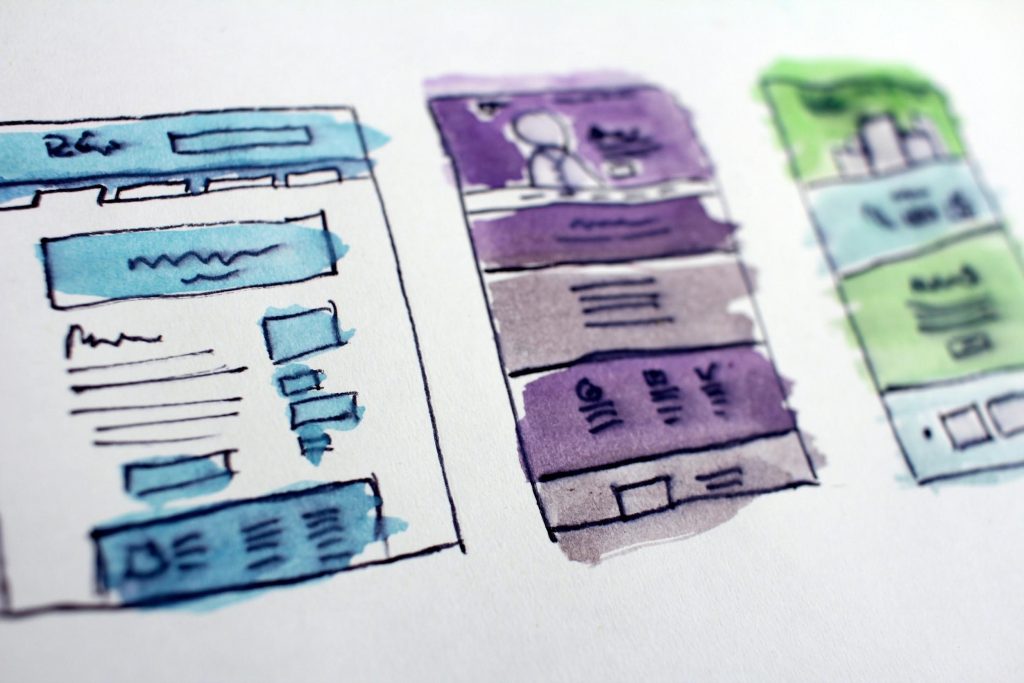It’s no secret that the tech industry has some of the most lucrative jobs in today’s economy. The most in-demand positions can easily command 6-figure salaries, generous benefits, and appealing perks. If you’re looking to get in on the action, well you wouldn’t be alone. Nevertheless, the job market can be very competitive for tech workers, especially at the top companies like Google or Facebook. But that’s no reason to think you can’t get the job offer if you have the right skills and experience. In this article, we’ll outline the in-demand or evergreen skills you need for tech sector jobs, as well as giving you some insider tips to ace your interviews and secure a job offer. So let’s get right to it!
Technical Skills
1 - Software Development

When it comes to tech industry jobs, software developers and engineers are regularly the most highly compensated group of employees at a company. Here are some of the most in-demand programming languages (along with some software development skills) that developers can learn and gain experience with to help them secure a software development position in the tech sector:
- C++/C/C#: The C family languages are perhaps the most widely used programming languages out there. You may find C skills being listed as requirements for many software engineering or development job postings. They are well known for their capability to develop powerful, flexible, and fast programs and are widely used by most tech companies. Experience with one, or all, of the C languages, can assist any aspiring software developer in acing their interviews.
- Java: Java, an Object-Oriented language developed in 1995 by Sun Microsystems, has long been one of the most popular programming languages for tech companies. In fact, the language is used extensively to build enterprise-scale applications that can be run on many different platforms (Windows, Linux, macOS, etc). If you’re looking to become a software developer, having Java skills on your resume will prove to be a valuable asset.
- Python: Python is a high-level, interpreted, and general-purpose language that can be used in functional, object-oriented, and structured programming paradigms. It’s well-known for its emphasis on readability, extensive whitespace, simple syntax, and its comprehensive standard library. Like Java, it can be used to great a wide variety of applications and is used in nearly every large tech company.
- Ruby: Ruby is another general-purpose language like Python. It, too, can support several programming paradigms when being used to develop applications. It was created by Yukihiro Matsumoto through the blending of aspects from his favorite languages. Ruby is beloved for being beautiful and practical and is usually used as a scripting language for web applications.
- Testing & Debugging: Not only do aspiring developers/engineers need adequate programming skills, but they also need some experience with testing and debugging their code. If you can demonstrate to your interviewer, both by using your resume and through your interview answers, that you can debug your code well, you’ll have an easier time getting tech job offers.
- Agile Methodology: While some programming skills are necessary for any software development position, experience with the Agile development methodology will improve your odds of acing your tech interviews. Agile is an iterative development methodology in which the requirements and solutions to software development evolve throughout the development cycle. Agile methodologies, such as SCRUM or Kanban, are commonly used by development teams in today’s tech companies. Experience with them will only serve you well in your software development interviews.
2 - Mobile Development

With the right skills, some software developers may find that part of their development portfolios involve mobile development. Many tech companies today have mobile products, and thus, need mobile developers on their software teams. Luckily for developers, the vast majority of mobile devices are powered with either Android or iOS.
- Android (Kotlin): By and large, almost all Android apps are actually developed with Java. While it’s technically possible to develop Android apps using C or C++, it usually isn’t done. If you’re interested in professional mobile development with Android, you should gain some experience with using the Android SDK. There’s also another programming language, Kotlin, that has recently become popular with professional Android programmers. Having some Kotlin skills on your resume will definitely help you stand out.
- iOS (Objective-C & Swift): The other giant of mobile development is Apple’s iOS. The two programming languages applicants should have on their resumes if they’re looking to work with iOS are Objective-C and Swift. By and large, Objective-C is the language that is used for iOS and OSX. Swift, however, is a language that was developed by Apple that can be used to make iOS development much simpler.
3 - Web Development

Web development skills, like software development, are also in high demand at most tech companies. There are many different skills candidates can learn to find employment as a web developer. Some of the most lucrative of which are:
- HTML/HTML5: HTML skills (specifically HTML5) are a must for any aspiring web developer, as the markup language is the foundation of the modern web. Not only is HTML fundamental to the modern web, but it’s also the first stepping stone on which most other web development skills are based on.
- CSS: Like HTML, CSS is another fundamental web development skills that all aspiring web developers need to have to secure a job offer at a tech company. CSS is a “style-sheet” language, meaning it is used to present web pages written with markup languages like HTML, (think color, fonts, spacing, layout, etc). As the name suggests, CSS is used to stylize your web documents.
- Javascript: Along with HTML and CSS, Javascript is another fundamental skill in web development. In fact, the three skills together are often referred to collectively as “front-end design.” Javascript is a scripting language used on almost every website and used by almost every company. Therefore, JS skills on your resume will be welcome, and most likely necessary, for modern web development jobs.
- jQuery: jQuery is a popular Javascript library that can be used to simplify the use of Javascript on web development projects. It essentially makes complicated Javascript tasks possible with much fewer lines of code. While jQuery is not as fundamental as the previous three skills, experience with jQuery can help aspiring web developers stand out in their job interviews.
- PHP: PHP is a general-purpose scripting language that is commonly used by web developers. The language is accessible for newcomers, but still offers powerful features for more advanced web developers. Along with the previously mentioned web development skills, working knowledge of PHP is a welcome addition to all developers’ resumes.
4 - Data Science

Data Science is another lucrative field for aspiring tech workers. Data scientists, especially those working on AI/machine learning, are also among the highest-paid tech workers. The field will continue to expand well into the future given the advent of big data. All tech companies are continually looking to leverage data analytics and artificial intelligence to improve their business operations. With some data science skills on your resume, you shouldn’t have that much difficulty in attaining a lucrative job in the tech sector.
- Business Analytics: In the end, companies can collect all the data that they want, but it isn’t of any use to them if they can’t analyze it. If you have a background in mathematics, statistics, or engineering, you may already have the skills necessary to be a business analyst, and you’ll find that these skills are welcome at every tech company.
- Artificial Intelligence/Machine Learning: In recent years, artificial intelligence and machine learning have become a huge part of the tech sector. Not only that, but the field is poised to become even bigger as time goes on. Needless to say, nearly every tech company will love to see AI/machine learning skills on your resume.
- SQL: SQL, or Structured Query Language, is a programming language specifically used to communicate with databases. Given that databases are extensively used by almost every tech company in one way or another, they’ll need data engineers with SQL skills on their teams.
Now, of course, there are many more tech skills out there that can land you a lucrative job at a tech company. Whether it be product management, UX design, or cybersecurity, there are a plethora of in-demand skills. However, these are some of the most popular and evergreen that is sought after by nearly every tech company.
Interview Skills & Tips

At the end of the day, technical skills alone aren’t enough to ultimately get the job. More often than not, tech job applicants make the mistake of leaning too heavily upon their technical experience during their interviews. While obviously important, you can’t ace a tech interview unless you allow your personality and your soft skills to shine through. For instance, Amazon relies heavily on behavioural interviews to assess candidates.
Soft Skills

During your interviews, be sure to highlight some of the following soft skills to better your chances of receiving an offer. Many interviews today involve behavioural questions that will allow you to provide past examples demonstrating these skills.
Creativity
All cliches aside, tech companies do want candidates that can think outside the box. Whether it be through a unique perspective or innovating new ideas, tech companies today will want candidates that can provide value with creativity as much as they would technical ability.
Problem Solving
Problem-solving is perhaps the most important soft skill of any tech worker. No matter what particular job you may be applying for, you will need to solve problems. Therefore, you need to demonstrate to your hiring managers that you have a penchant for problem-solving. After all, all products, in the end, are in the business of solving some problem for their users.
Teamwork
The vast majority of tech workers will find themselves working within a team. As such, an interviewer will be looking towards your ability to work well within their particular environment. Make sure to highlight all the ways you’ve collaborated with others to achieve success. Provide concrete examples of times you’ve managed to bring value to your team without causing conflict or drama.
Communication
Communication skills are often highly sought after skills for any tech job. This is especially true for those very technical positions, such as engineers or developers. While their job lies primarily on their technical abilities, they’ll still need to communicate and work with colleagues who may not be so technically inclined. Great communication skills are not as common as you may among tech job seekers. So, having these skills under your belt is a great way to stand out.
Interview Tips

1 - Ask Questions
This is a tip that applies to all interviews, not just those in the tech sector. Be sure to prepare some questions ahead of time. Your interviewer will give you the opportunity to ask questions, so be sure to take advantage. Ask smart questions about the important things of the position. Otherwise, your interviewer may think you’re not that interested in the job or not that passionate about the work you’d be doing. Needless to say, no hiring manager wants to hire a disinterested candidate.
2 - Use the Whiteboard
Most tech interviews may involve some rather complex questions. It’s not uncommon for your interviewer to provide a whiteboard for you to use to help you answer. The most valuable thing about using the whiteboard, however, is the capability to really demonstrate how you think and approach problems. In doing so, you can also highlight your soft and technical skills all at once. If you detail, step-by-step, exactly how you answer a particular question, your interviewer will have a much richer understanding of your thinking, improving your chances of making a good impression.
3 - Do Your Research on the Company
Before you arrive on the day of your interview, be sure to do plenty of research on the company itself. Showcase your knowledge of what they do throughout the process. Doing so will communicate a few things. First of all, it definitely demonstrates that you’re passionate and excited about the work you may be doing with the company. Secondly, and possibly most importantly, that you care enough about the company and the job to do your homework. As we previously mentioned, interviews want to hire enthusiastic candidates, not apathetic ones.
4 - Go Through Some Mock Interviews
One of the best ways to prepare and ace any tech interview is to go through plenty of mock interviews beforehand. Check out online interview question databases to get a feel for what types of questions are asked. There are many interview coaches and services out there that can provide you with mock interviews that will resemble those at big tech companies. That way, when it comes time for the real thing, you’ll feel more confident, less nervous, and better prepared to nail any question coming your way.







Add comment